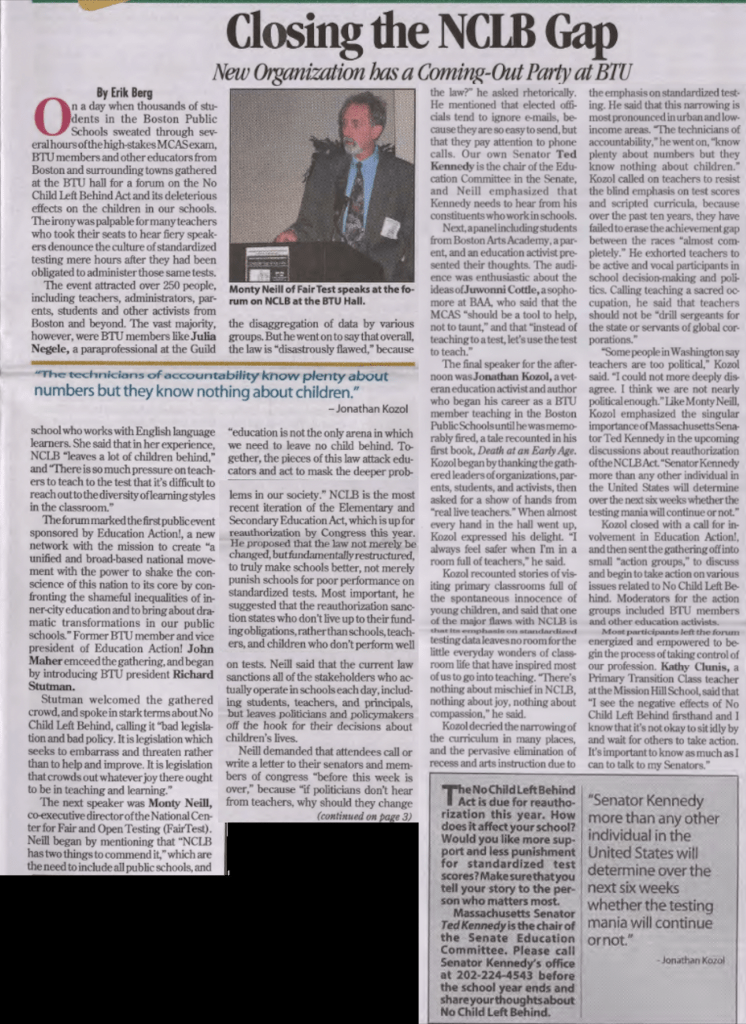Concurrent Context: No Child Left Behind (2002)
“An act to close the achievement gap with accountability, flexibility, and choice, so that no child is left behind.”
The BTU Reacts

Dec. 2003: “On the surface, the law appears to contain many good ideas… Unfortunately, the law is dramatically under-funded and contains unrealistic goals…”
“The punitive nature of NCLB, in fact, is a direct affront to our collective bargaining rights.”
NCLB: A Civil Rights Imperative
Some facts…
…there are currently over 5 million ELLs in public school, which is 10.5% of students in k-12 in the United States.
ELLs are the fastest growing segment of the student population, however…
…the high-school graduation rate is only 49% for ELL students.
Educating ELL students impacts our economic competitiveness – college graduates are expected to earn on average $1M more over their lifetime than a high-school drop out.
The taxes that could be paid on the potential income earned through closing the achievement gap would be enough to pay off the entire national debt.
This is a civil rights issue; a matter of fairness
ELL students need a quality education
The Department of Education estimates that the return on investment for education is a factor of 5 to 1
Parents, educators, and students that are being effective are aware of and involved in education legislation
Some solutions…
…the standards of high quality teachers under Title 2 of NCLB must be raised to include culture competency skills and bilingual skills of the people who work with ELL students
…increased investment in proper translation services so that the materials and programs are more accessible and practical for ELL students, their parents, and their communities
The BTU Reflects

Julia Negele, paraprofessional at the Guild School who works with English language learners: NCLB “leaves a lot of children behind… There is so much pressure on teachers to teach to the test that it’s difficult to reach out to the diversity of learning styles in the classroom.”
Richard Stutman, (former) BTU president: NCLB is “bad legislation and bad policy. It is legislation that crowds whatever joy there ought to be in teaching and learning.”
Monty Neill, co-executive director of the National Center for Fair and Open Testing (FairTest): “Education is not the only arena in which we need to leave no child behind. Together, the pieces of this law attack educators and act to mask the deeper problems in our society.”
